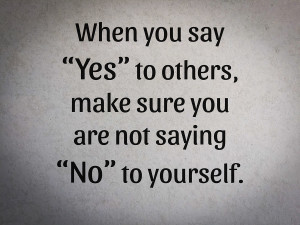I got asked this question at the Looking Glass Foundation the other day and I think it hits on a really important point.
I know a few people who have recovered and they keep trying to tell me how it needs to be done. I don’t want to be rude but I am tired of being told how my recovery needs to look. It is made more difficult because these people have actually been through it. How do I set boundaries in a way that doesn’t ruin the friendship?
I absolutely LOVE this question. Boundaries a re one of the most important pieces in eating disorder recovery not only because they teach others how we want to be treated but also because they teach us how we want to treat ourselves. Boundaries are what allow us to move into the recovery world and continue taking steps towards what we want and what we need.
re one of the most important pieces in eating disorder recovery not only because they teach others how we want to be treated but also because they teach us how we want to treat ourselves. Boundaries are what allow us to move into the recovery world and continue taking steps towards what we want and what we need.
People who have recovered usually want to share their tricks and tips because they really want you to reach full recovery as well. Their intentions are really good (usually) but sometimes even with the best of intentions, people’s remarks can have a detrimental impact on how we feel and our recovery. As you may know, recovery is such an individual experience, one where many people share overlapping experiences but also where what makes recovery possible for one, could have the opposite effect on another.
To set boundaries requires you to do some exploring within yourself. Which comments do you find helpful? Which ones are harmful? Do you understand why they are helpful or harmful? The reason you want to get clear on how things affect you is so that you can express yourself in a way that is clear and also that lets those in your life know what you need on this journey. Learning about your needs means that you will know yourself and your path to recovery in a way that can help you navigate the tough times.
Once you are clear, these are the guidelines you use when others try to offer advice or guide you on your journey. If they offer something that doesn’t feel like the right fit for you, you can say something along the lines of “Thanks for the suggestion, I am really happy you found things that worked for you. For me, the things that have really proven to work and be helpful for my recovery are X, Y, Z.” If they keep pushing, you can increase the boundary by saying something like “I appreciate you want to help but sometimes it feels like you want me to do recovery your way instead of listening to what I have found actually works best for me. I don’t feel like exploring my recovery any further with you today so can we please talk about something else.”
It can be hard to set boundaries with people we care about, especially when we know that they are just trying to be helpful. We need to remind ourselves that our boundaries are guideposts for the type of relationship we want to have and if our boundaries are not respected usually the relationship suffers. Recovery is really tough work. You want to do everything you can to make sure you and your support team are on the same page. If your boundaries can’t be respected then it is okay to take a step back from the relationship until a later time when you can connect in a healthier way.
Finally, I hope you spend some time reflecting on how strong you are to realize what does and doesn’t work for you. It takes a lot of insight to realize that you find other people’s input sometimes impedes your progress. Keep exploring yourself with open curiosity to see what moves you forward in your recovery.


